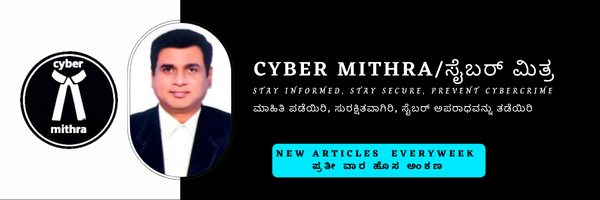Introduction to CyberSecurity Engineer and Administrator job opportunities
For the last few columns, I have been talking about various Cyber Security job opportunities for freshers. In last week’s column, I talked about cyber incident responder and cryptographer job opportunities of the top ten entry-level jobs in cybersecurity discussed in first column. In this column, I am going to talk about two more entry-level jobs in cybersecurity – Cyber Security Engineer and Cyber Security Administrator, giving an overview of the job features/responsibilities, skills, qualifications, certifications, salary, job titles and career progressions.
CyberSecurity Engineer Job Opportunities :-
Cybersecurity engineers design and implement a secure system, device, and network solutions to protect an organization from cyberattacks by cybercriminals and persistent online threats. Once a security system is in place, they may monitor, maintain or upgrade it, respond to security breaches, test, identify and correct those system errors, and write reports to those in managerial roles. They are responsible for ensuring the confidentiality, integrity and availability of information systems and data.
For this post they should preferably have a degree/diploma in computer related subject, preferably they must have knowledge on various operating system, networking and system administration, security utilities/tools, digital forensics, cryptography, programming and scripting skills. In addition, they should be good with non-technical skills such as analytical thinking, problem solving, communication, team spirit and keen vision. Industry certifications like CompTIA’s Security+, CompTIA’s Network+, Certified Computer Forensics Examiner and Certified Information Systems Security Professional (CISSP) can help you negotiate for a better job/salary. For this job, you can expect a salary of 3-15 lakhs in the first year. Here you can start from Cyber Security Engineer and go up to the post of Senior/Lead Security Engineer, Cyber Security Specialist/Manager/Vice President.
Cyber Security Administrator Job Opportunities :-
As part of an organization’s cybersecurity team, cybersecurity administrators are expected to keep information systems safe from attack. Typical responsibilities of security administrators as a group can include: Monitor systems, networks, wifi applications, or wearable devices. Develop new security protocols. Furthermore they protect systems against unauthorized access, information modification and/or destruction, monitor and assess the network for vulnerabilities and unusual activity, configure security tools such as firewalls, anti-virus software and patch management systems, network/application security policies, access control and Implementing corporate data safeguards and also training employees in security awareness procedures.
For this post one must preferably have a degree/diploma in computer related subject, mainly they should have knowledge about various operating system, networking and system administration, security utilities/tools, programming and scripting skills. In addition, they should be good with non-technical skills such as analytical thinking, problem solving, communication, team spirit and keen vision. Industry certifications like CompTIA’s Security+, CompTIA’s Network+, Certified in Risk and Information Systems Control (CRISC) and Certified Information Systems auditor (CISA) can help you get a better job/salary. For this job you can expect a salary of 3.5-13 lakhs in the first year. Here you start as Cyber Security Administrator and go up to the post of Senior/Lead Security Engineer, Cyber Security Specialist/Designer/Architect/Manager.
Where can we learn these cyber security skills?
You can learn the above mentioned technical and non-technical skills in either offline or online mode. You can learn in offline mode in colleges (Karnataka and India) and also in online mode as part of diploma, degree, post graduation or certification course, such courses are also available to you for free (YouTube, udemy, simplilearn etc.) but to prove your knowledge learned to prospective employers, you may need to do certifications for your preferred job mentioned above.


